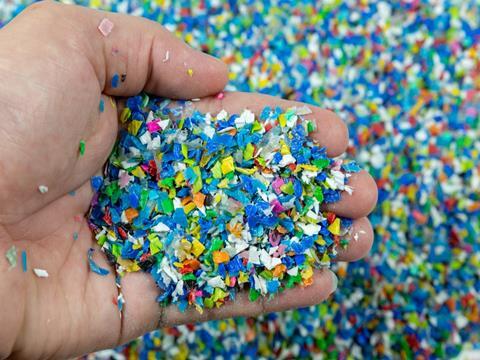
TotalEnergies has signed an agreement to purchase Indaver’s petrochemical feedstock generated from recycled mixed polyolefins; the company is now set to use it in contact-sensitive applications such as food packaging.
Reportedly, Indaver will convert post-consumer mixed plastic waste into petrochemical feedstock at its Plastics2Chemicals (P2C) plant, which is currently under construction and set to open its doors in 2024. TotalEnergies will then purchase this feedstock and process it into ‘high-quality circular polymers’, the company claims.
The recycled polymers are said to be identical to virgin polymers in properties and quality, which is thought to make them suitable materials for food packaging and other contact-sensitive applications.
“We are delighted to support the development of advanced plastic recycling through this new offtake agreement,” said Valérie Goff, senior vice president of Renewable Fuels & Chemicals at TotalEnergies. “A collaboration throughout the value chain is critical to developing a more circular and sustainable economy. This partnership contributes to our ambition of producing 30% circular polymers by 2030.”
“We are very pleased with this agreement,” added Paul De Bruycker, CEO of the Indaver Group. “Our companies share the same vision of a true circular economy for recycled end-of-life plastics.
“Indaver’s Plastics-to-Chemicals (P2C) depolymerisation technology allows it to recycle end-of-life plastics such as polyolefins and polystyrene by converting them into a petrochemical feedstock that can be used for the production of high-demand packaging materials.
“With P2C, we significantly expand the possibilities for recycling of end-of-life plastics waste that could previously not be recycled or only be used for conversion into low-value applications.”
Neste has recently provided Idemitsu Kosan with a raw material designed to replace conventional fossil feedstock and produce lower CO2 emissions. The collaboration, also including CHIMEI and Mitsubishi Corporation, aims to create a supply chain of renewable plastics.
Mura Technology and Dow have also collaborated to build a new advanced recycling facility, with which the latter expects to become the largest consumer of feedstock derived from plastic waste for PE production globally.














No comments yet